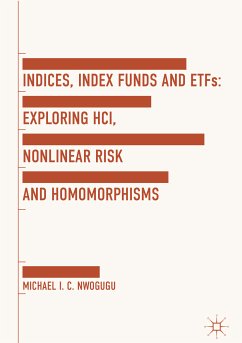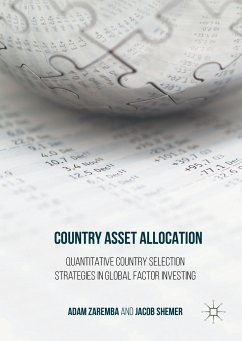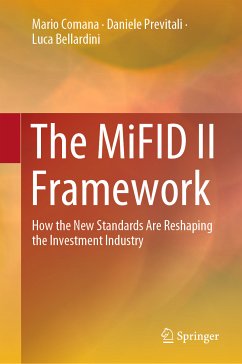
Indices, Index Funds And ETFs (eBook, PDF)
Exploring HCI, Nonlinear Risk and Homomorphisms
Versandkostenfrei!
Sofort per Download lieferbar
72,95 €
inkl. MwSt.
Weitere Ausgaben:

PAYBACK Punkte
36 °P sammeln!
Indices, index funds and ETFs are grossly inaccurate and inefficient and affect more than EUR120 trillion worth of securities, debts and commodities worldwide. This book analyzes the mathematical/statistical biases, misrepresentations, recursiveness, nonlinear risk and homomorphisms inherent in equity, debt, risk-adjusted, options-based, CDS and commodity indices - and by extension, associated index funds and ETFs. The book characterizes the "Popular-Index Ecosystems," a phenomenon that provides artificial price-support for financial instruments, and can cause systemic risk, financial instabil...
Indices, index funds and ETFs are grossly inaccurate and inefficient and affect more than EUR120 trillion worth of securities, debts and commodities worldwide. This book analyzes the mathematical/statistical biases, misrepresentations, recursiveness, nonlinear risk and homomorphisms inherent in equity, debt, risk-adjusted, options-based, CDS and commodity indices - and by extension, associated index funds and ETFs. The book characterizes the "Popular-Index Ecosystems," a phenomenon that provides artificial price-support for financial instruments, and can cause systemic risk, financial instability, earnings management and inflation. The book explains why indices and strategic alliances invalidate Third-Generation Prospect Theory (PT3), related approaches and most theories of Intertemporal Asset Pricing. This book introduces three new decision models, and some new types of indices that are more efficient than existing stock/bond indices. The book explains why the Mean-Variance framework, the Put-Call Parity theorem, ICAPM/CAPM, the Sharpe Ratio, Treynor Ratio, Jensen's Alpha, the Information Ratio, and DEA-Based Performance Measures are wrong. Leveraged/inverse ETFs and synthetic ETFs are misleading and inaccurate and non-legislative methods that reduce index arbitrage and ETF arbitrage are introduced.
Dieser Download kann aus rechtlichen Gründen nur mit Rechnungsadresse in A, B, BG, CY, CZ, D, DK, EW, E, FIN, F, GR, HR, H, IRL, I, LT, L, LR, M, NL, PL, P, R, S, SLO, SK ausgeliefert werden.












